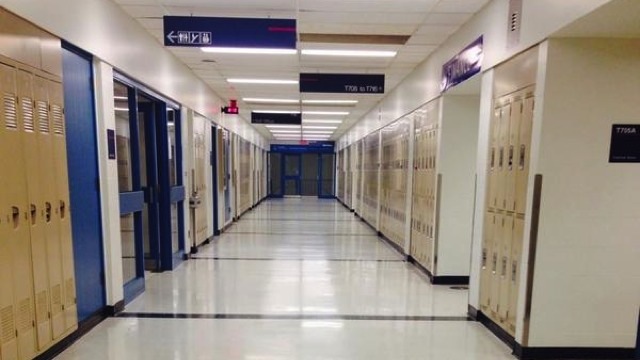SUMMARY
This is AI generated summarization, which may have errors. For context, always refer to the full article.

MANILA, Philippines – Not long after graduating from the University of Santo Tomas (UST), then 20-year-old Joyce Realon and her family flew to Canada in April 2012 to welcome another chapter in their lives.
Joyce graduated cum laude from UST with a bachelor’s degree in Financial Management. While her credentials are good, her 4-year degree was not enough to get her employed in her new home.
“Employers usually look for someone who has a Canadian diploma and/or degree,” she tells Rappler.
Months after they settled down in Edmonton, Alberta, she worked part-time and eventually pursued a degree in Business Administration at the Northern Alberta Institute of Technology starting January 2013.
Since her parents already sent her to school in the Philippines, she wanted to pay for her own tuition fees in Canada. For her first two semesters, she applied for student loans both from the federal government and the provincial government.
Because she earns from her part-time job, she can now send herself to school without the student loans. Now on her second year as an accounting major, Joyce works full time and takes night classes thrice a week.
“What I like most about studying in Canada is its flexibility, enabling me to still get the best of both worlds: I get to enjoy my life as a student while earning money,” she shares.
Canada’s Ambassador to the Philippines Neil Redder says Canada enjoys one of the strongest and highest quality education systems in the world. Because of its state-funded colleges and universities, tuition fees are kept at modest levels.

Academe and industry
The country is also a “mosaic where each culture is celebrated,” says Chris Tan, founder of Ideal Minds Corporation and an alumna of the University of Western Ontario.
“It made me realize I can be whatever I want to be,” he adds.
Even outside educational institutions, Filipino students are accepted and respected. Joyce’s employers, for example, have always been very accommodating whenever she needs to take some days off to review for examinations.
SEAOIL Philippines President and CEO Glenn Yu says he was given the opportunity to work with professors who wrote the very textbooks they studied in class; he worked with the actual experts in his chosen field.
Yu graduated cum laude with a degree in Chemical Engineering from the University of British Columbia – one of 3 Canadian universities in the top 50 of the 2014 QS World University Rankings.
For Joyce, she’s glad universities cut to the chase and teach students exactly what they need to learn – skills they can apply in the workforce.
Excellence, the Canada way
Canada has a trimester system, with admissions in September, January, and May. A full-time student in Canada can only take a maximum of 5 courses every semester, Joyce explains.

“Canada is a mosaic where each culture is celebrated.”
– Chris Tan, Founder, Ideal Minds Corporation
While attendance is not a big deal to professors, those who attend classes are encouraged to ask questions and to think critically, since there are more essay-writing involved than memorizing.
Students are also expected to be involved in their communities through philanthropy services.
In 2013, over 293,000 international students chose Canada as their study destination. By 2020, Canada wants to double its number of foreign students and researchers to 450,000. (READ: Want to study abroad? Canada wants you)
Reeder says Canada can definitely be a study destination for young Filipinos, since the cost of living and tuition fees for international students are generally lower than other countries.
But if they want to survive, he says they will need to study hard and get good marks.
Joyce agrees: “You have to make sure that you actually like what you will take because as I said earlier, Canadian education is very flexible. You can come and go anytime you want and everything will depend on you – whether you’d like to finish your program right away or slack off.”
But slacking off would be a big waste of opportunity, especially in a country that celebrates diversity and pluralism. (READ: Is studying abroad for you?)
“Personally, going back to school [in Canada] brought me so much more than having a diploma or a degree. I gained more confidence, met new people and friends, and increased my social network,” she adds. – Rappler.com
The Embassy of Canada in the Philippines will hold its third Study in Canada Fair on Saturday, October 4, at the Fairmont Hotel Makati. For more information, visit the embassy’s Facebook and Twitter accounts.
(Editor’s note: We earlier reported that Joyce is an international student. She and her family arrived in Canada as residents. We regret the error.)Add a comment
How does this make you feel?
There are no comments yet. Add your comment to start the conversation.